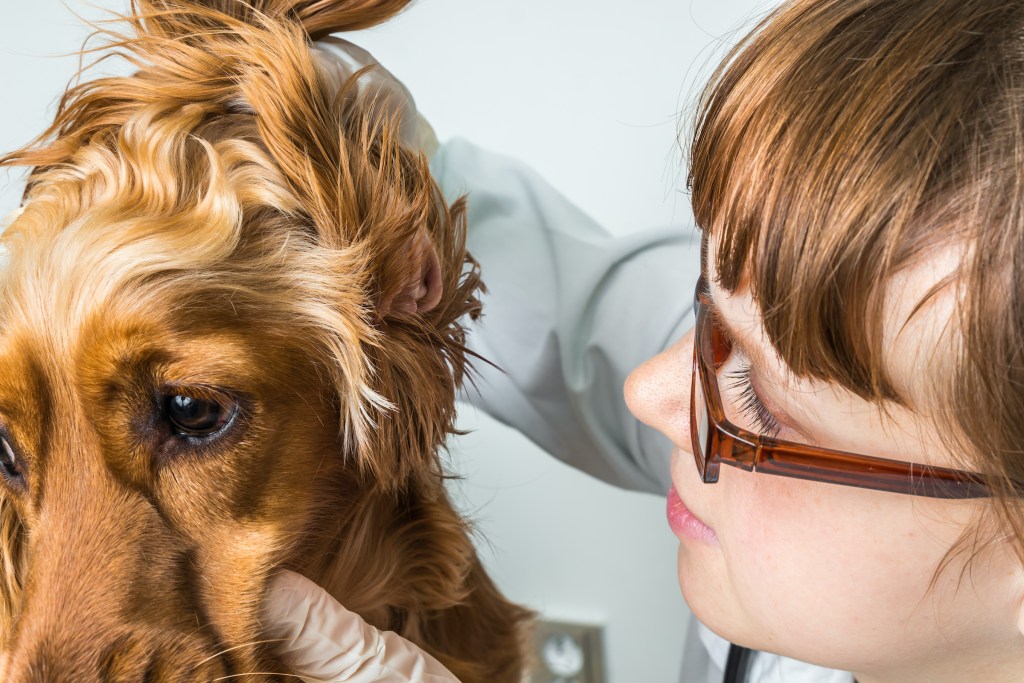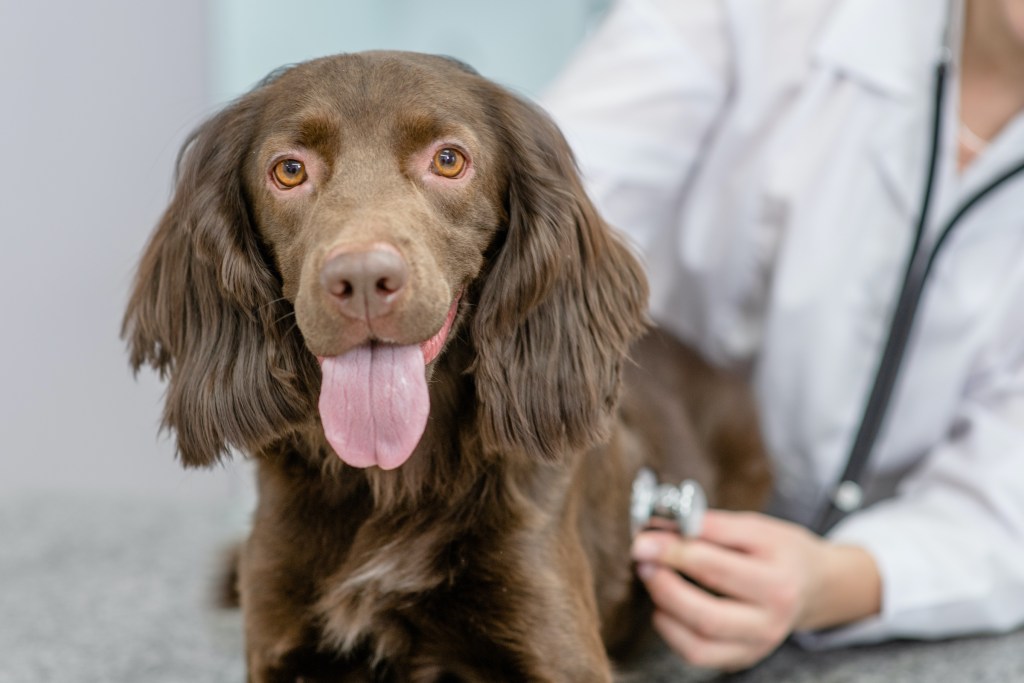Cocker spaniels are known for several features: their long and curly coats, teddy bear faces, and sweet floppy ears. As cute as they are, though, those ears can house all kinds of ickiness that leads to discomfort and infection. But why do cocker spaniels get ear infections?
Although they’re not the only breed that seems to be prone, they’re certainly one of the most well-known examples. Pet parents need to know the essentials behind cocker spaniel ear infections — why they happen, how to prevent them, and the signs and symptoms to look out for.
Why do cocker spaniels get chronic ear infections?
It’s all about anatomy here. Spaniels — as well as hounds and other breeds — are more susceptible to chronic ear infections due to the long, floppy shape of their ears. Although all dogs have a vertical ear canal that often retains fluid, cocker spaniels’ long, heavier ears trap even more moisture with their lack of airflow.
Moist, dark environments — like the inside of an ear—make the perfect home for bacteria and yeast, which just so happen to be the most common causes of ear infections in dogs. Long ears can also pick up grass, dirt, and other allergens that contribute to ear swelling and infections.

How to prevent cocker spaniel ear infections
Although nothing can be done to change the ear shape of cocker spaniels, there’s a lot you can do at home to make sure your pup’s ears stay healthy and clean. The first, of course, is to establish yourselves at a veterinarian’s office if you haven’t done so already. They can show you the best ways to clean and care for your dog’s ears.
Keep a consistent grooming schedule
Because cocker spaniels have long, luscious hair, regular grooming is a key to their beauty, health, and happiness. If you don’t let the hair on your dog’s ears get super long, his ears may not trap in as much moisture, dirt, or bacteria. Trimming the hair inside the ears, however, creates less space for unwanted particles to gather and fester.
When your dog visits the groomer, they’re getting cleaned as well as trimmed. This cleaning is essential to ear health, too, since dogs often aren’t able to do it themselves. It’s a good idea to clean your pup’s ears at home as well, since they’re likely to need more frequent care than their coat.
Cleaning your dog’s ears
When cleaning your dog’s ears at home, only do so when they’re healthy. A well-meaning cleaning could worsen the effects of an infection if it’s already in full swing, so those washes are best left to your vet.
To clean your dog’s ears, a mixture of equal parts water and apple cider vinegar will do the trick (witch hazel works, too!). Pour a bit of solution onto the outer edges of your dog’s ear, then hold their ear closed and massage in your homemade cleanser.
For wiping off the outside of the ear, a damp cotton ball or Q-tip (just don’t go inside the ears) will be fine. This is also a great method for drying out your dog’s ears, which is another important piece of the puzzle.
Keep your cocker spaniel’s ears dry
Whether your four-legged friend is also an aquatic athlete or he just got caught in the rain, drying out his ears will be a small act that makes a big difference. As mentioned previously, cotton balls are an easy way to dry off ears, though a soft towel can be a reusable alternative. Whatever you use, be gentle!

How to detect and heal dog ear infections
You can take all the preventive measures possible, and your pup still might end up with an ear infection — it happens! By knowing what to look out for, though, you can make sure every issue is treated and healed as quickly as possible. Consider this Ear Infection 101:
What to look for
Although a buildup of wax isn’t necessarily a sign of ear infection, it certainly can be. Look for some of these other symptoms:
- A sudden, long-lasting head tilt
- Dog acting off-balance
- Pawing at face or rubbing face on the floor
- Redness or swelling inside the ear
- Head shaking
- Dark discharge, crustiness, or scabs
If your eyes don’t notice anything, your nose might. A pup’s infected ear can emit a musty, funky odor — but you might have to sniff closely.
How to treat a cocker spaniel’s ear infection
Before you treat a cocker spaniel’s ear infection, you need to nail down its root cause. This is when your veterinarian can really help you. Not only will they diagnose the ear infection as accurately as possible, but they’ll also be able to guide you on your next steps toward treating it. This will most likely include a medication that you’ll apply to the outer part of the ear and massage in, but it varies from case to case.
Cocker spaniels are fantastic dogs when it comes to personality, but their ear health isn’t always the best. Thankfully, with proper maintenance and TLC, those floppy bunny ears no longer have to give you (or your pup) trouble. It’ll be back to playtime in no time.
Editors' Recommendations
- Why does my dog have a bald patch on their tail? Here are the answers you need
- When do kittens’ eyes change colors? The answer is so cool – here’s what to know
- Does your dog drink a lot of water? Here’s when you should be concerned
- What you need to know about your cat’s swollen lip – what caused it and how to help it heal
- Why do you often find your dog with their tongue out? Here’s what vets say about the ‘blep’




